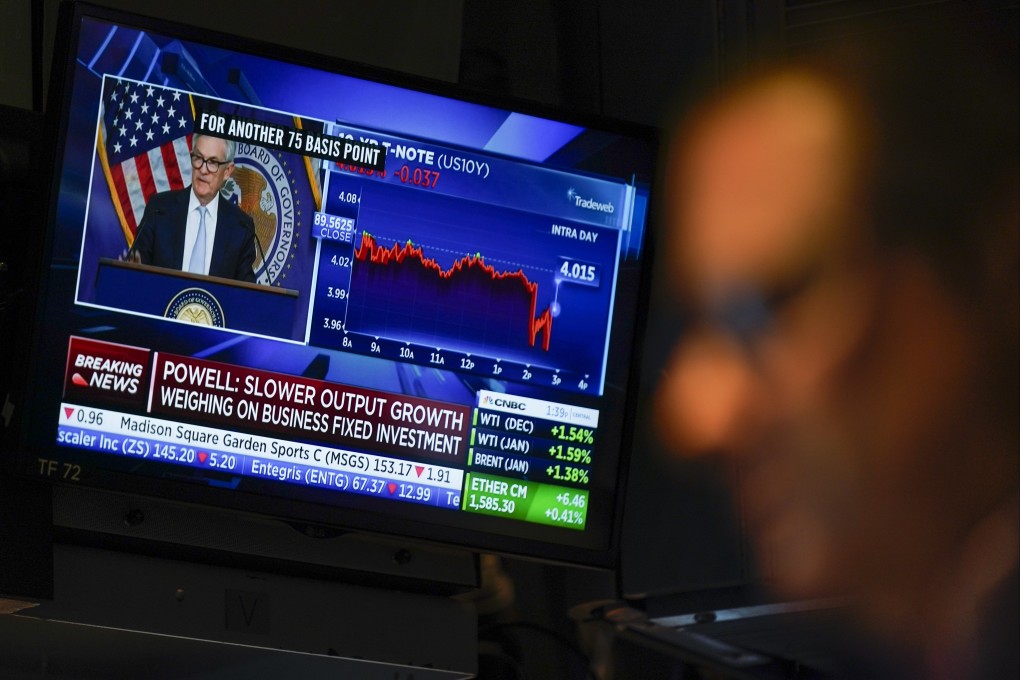Advertisement
Macroscope | Why it’s too soon to say if US stocks have hit the bottom
- Investors are looking for the US stock market trough and starting to wonder if it has already passed, but multiple bear market rallies are not uncommon
- The sooner uncertainty over market risk clears up and a full recession is either priced in or not, the sooner equity markets can start to recover
Reading Time:3 minutes
Why you can trust SCMP
1

The S&P 500 hit a low of 3,577 on October 12, a decline of about 25 per cent from its January peak. Since then, mixed corporate earnings and the potential softening in the pace of interest rate rises from the US Federal Reserve have lifted risk sentiment and the equity market has gained about 7 per cent.
Investors are looking for the market trough and starting to wonder if it has already passed. However, multiple bear market rallies are not uncommon, and it could be too early to call the trough right now.
November is the time when many market commentators are releasing outlooks for the year ahead. These are likely to hint at better market performance, given the painful experience of 2022 and expectations that the trough must be close.
From a macroeconomic perspective, the only thing that matters in this respect is inflation. The outcome for equities could come down to who wins the race between inflation falling and the impact of tighter financial conditions on economic activity and the corporate outlook. Can inflation slow enough before financial conditions become too tight and interest rates too high, choking off economic activity completely?
Equity markets are forward-looking and build in expectations for the outlook for the economy and company earnings. Historically, this has resulted in markets finding the floor even as economic growth and corporate earnings continue to fall or before financial conditions have started to ease.
This occurs because the equity markets are not concerned with the absolute level of these indicators but their rate and direction of change. For example, equities can rise even as the economy is contracting because a quarterly gross domestic product report that shows it is in recession but contracting at a slower pace than the previous quarter might actually be a positive.
Advertisement
